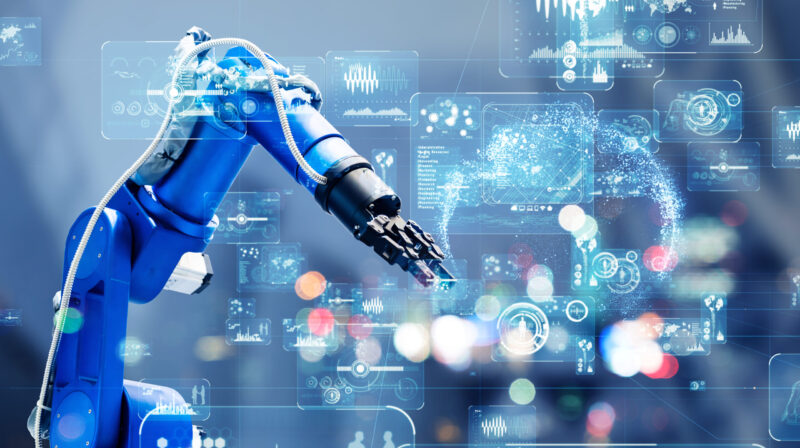
This site
is mobile
responsive

Artificial intelligence (AI) is at the forefront of technological innovation. While AI is not a new technology, recent advances in machine learning have significantly impacted our daily lives. AI subtly influences our decision-making processes, from personalised search results to product recommendations and even to self-driving cars. Its goal is to provide better services and improve overall user experiences.
AI has brought about transformative changes in various industries, including manufacturing, healthcare, transportation, finance, and many more. By enabling advanced analytics, automation, and intelligent decision-making, AI facilitates process optimisation, preventive maintenance, virtual assistants, fraud detection, and anomaly detection.
According to a report by Precedence Research1, the global AI market is projected to reach approximately USD2,575.16 billion by the year 2032, showing significant growth from the current value of USD454.12 billion in 2022. This translates to a compound annual growth rate (CAGR) of 19 per cent from 2023 to 2032.
The Oxford Insights Government AI Readiness Index 20222 ranks Malaysia in the 29th spot out of 181 countries. The Index attributes Malaysia’s ranking to its strong digital capacity and infrastructure, which support AI development and implementation.
AI represents a pivotal lever for transforming the manufacturing and manufacturing-related services (MRS) sectors. By enabling intelligent automation, efficient human-machine collaboration, and continuous process improvements, AI promises to bring substantial cost reductions while increasing productivity and revenue. Here are some ways AI can have a positive impact on these sectors:
With the expanding possibilities, the scope to harness AI – both rapidly and extensively – has multiplied accordingly.
Malaysia’s aspirations in AI-driven value creation are anchored in the New Industrial Master Plan (NIMP) 2030. This visionary plan outlines mission-based approaches, with a central action plan dedicated to fostering the growth of generative and industrial AI solution leaders and system integrators3.
The action plan focuses on nurturing expertise and fostering innovation within the field of AI. Its goal is to empower local system integrators to assume pivotal roles in driving technological advancements and enhancing efficiency within the manufacturing and MRS sectors.
By cultivating a robust environment conducive to AI innovation and expertise, Malaysia aims to establish a competitive AI landscape. This endeavour ultimately serves the purpose of improving the lives and livelihoods of its citizens. This nurturing process forms the cornerstone for translating the ideals of NIMP 2030 into tangible advancements within the AI landscape.
Close coordination between industry players, government, agencies, and universities is essential to ensure all necessary components are in place. The Government will engage with relevant agencies and universities to develop AI talent, attract foreign direct investments for AI R&D centres, and foster partnerships with industry leaders.
Malaysia, with its role in high-value manufacturing and global services, is in a prime position to accelerate AI adoption. By developing a robust AI ecosystem, Malaysia aims to create 3,000 smart factories by 2030, positioning itself as a leading hub for AI-enabled manufacturing.
For more information on how MIDA can further assist industry players in adopting AI, please reach out to us, the Digital Investment Office (DIO) at https://mydigitalinvestment.gov.my/
References:
1Artificial Intelligence (AI) Market Report 2023-2032
https://www.precedenceresearch.com/artificial-intelligence-market
2Government AI Readiness Index 2022
https://www.unido.org/sites/default/files/files/2023-01/Government_AI_Readiness_2022_FV.pdf
3New Industrial Master Plan 2030
https://www.nimp2030.gov.my/index.php/pages/view/63?mid=455
